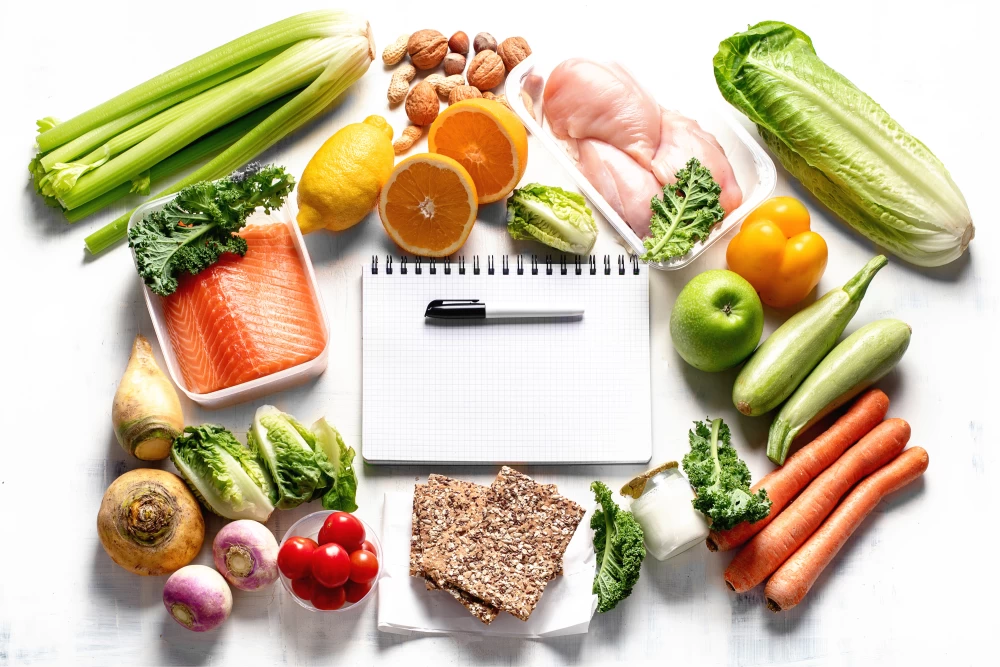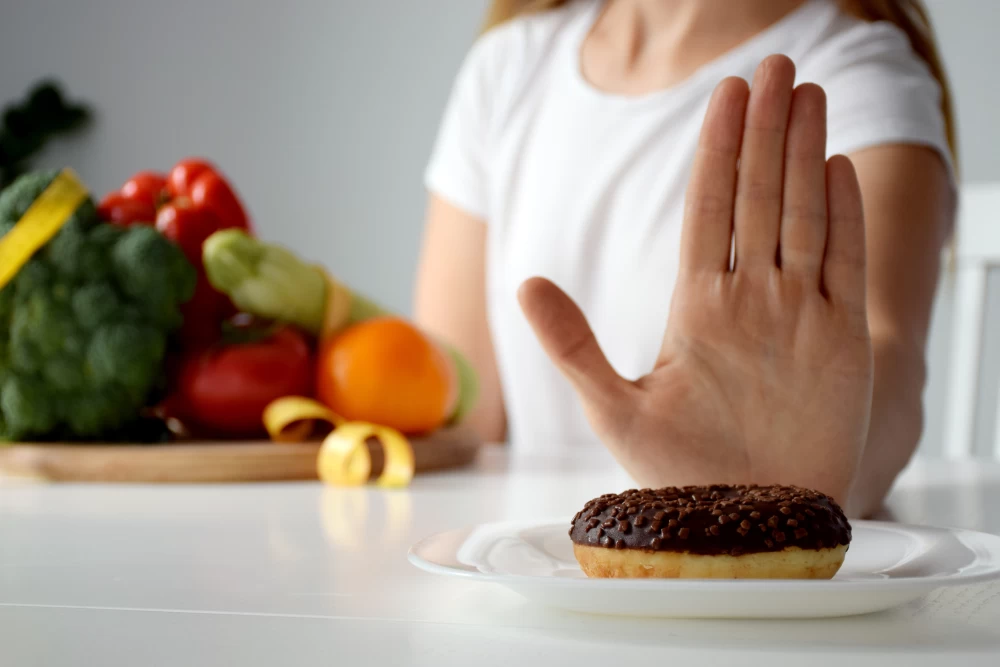
- 25th March 2023
Table of Contents
Fatty Liver Diet
Cooking and preparing meals for a fatty liver diet can be challenging, but it is crucial to incorporate certain foods while avoiding others. It is essential to limit the consumption of saturated and trans fats found in meat, butter, cheese, and other dairy products. Instead, opt for lean protein sources like chicken and fish that are baked or grilled instead of fried. Furthermore, it's important to include a variety of vegetables such as broccoli, spinach, kale, Brussels sprouts that are rich in vitamins and minerals required for liver health. For those who enjoy carbohydrates in their diet, whole grains such as brown rice or quinoa are an excellent source of fiber. However, refined carbs like white bread or pasta should be avoided since they have been stripped off from most nutrients during processing. Finally, limiting sugar intake from processed foods like cakes and candy can reduce inflammation caused by the buildup of fat in the liver. In addition to these dietary changes; cooking methods also play a significant role in managing fatty liver disease. Avoid using oils high in omega-6 fatty acids such as corn oil or grape seed oil that cause inflammation; olive oil is an excellent alternative due to its anti-inflammatory properties. Using non-stick pans instead of stainless steel pans prevent sticking without having to add excess oils while cooking meats or vegetables which helps promote healthy lifestyles overall.
Benefits of Eating Well
Eating well has numerous benefits that go beyond just maintaining good health. For individuals with a fatty liver, adopting a healthy diet can have a significant impact on their overall well-being. Eating foods that are low in fat, sugar and salt can help reverse the damage caused by this condition and promote healing. Additionally, consuming nutrient-rich foods such as fruits and vegetables can provide the body with essential vitamins and minerals needed for optimal health. Preparing meals for a fatty liver diet requires careful planning to ensure that all necessary nutrients are included while avoiding harmful ingredients. Some tips for preparing these meals include choosing lean protein sources such as chicken or fish, incorporating whole grains and fiber-rich foods, limiting processed foods high in sodium and sugar, and using healthy fats like olive oil instead of saturated fats found in butter or cream. In addition to promoting liver health, eating well can also improve energy levels, aid in weight loss efforts, reduce the risk of chronic diseases such as diabetes and heart disease, and even boost mood. By making conscious choices about what we eat on a daily basis we can experience these benefits firsthand while also taking control of our health outcomes.
Foods to Include
When it comes to a fatty liver diet, there are certain foods that you should include in your meals. First and foremost, vegetables are a must-have in any healthy diet. Vegetables such as leafy greens, broccoli, and carrots are rich in antioxidants and other essential nutrients that help detoxify the liver. Additionally, fruits like berries, apples, and grapefruits contain high levels of vitamin C which aids the liver in breaking down fats. Another essential food group to include is lean protein sources. Protein helps repair damaged liver cells while also maintaining muscle mass. Opt for chicken or turkey breast, fish like salmon or tuna, tofu or tempeh as your main source of protein. Lastly, whole grains should be included in your fatty liver diet plan to provide fiber that aids digestion and reduces inflammation. Good choices include quinoa and brown rice which can be used instead of white rice or bread in recipes. Overall incorporating these key food groups into your cooking routine will make it easier for you to prepare healthy yet enjoyable meals on a daily basis whilst managing fatty liver disease symptoms effectively.

Foods to Avoid
When it comes to following a fatty liver diet, there are certain foods that you should avoid. Firstly, high-fat meats such as beef and pork should be limited or avoided altogether. These meats often contain excessive amounts of saturated fat which can contribute to the development of fatty liver disease. Processed foods such as chips, candy bars, and baked goods should also be removed from your diet. These types of foods are usually high in calories but low in nutritional value, making them a poor choice for anyone looking to improve their health. Lastly, sugary beverages like soda and fruit juice can lead to weight gain and ultimately worsen symptoms associated with fatty liver disease. Opt for water or unsweetened tea instead. Making changes to your diet may seem daunting at first but with time it will become easier. Stick with it and remember that small dietary changes can make a big impact on your health!
Meal Planning and Preparation Tips
1. Incorporate fresh fruits and vegetables into your meals: A diet rich in essential vitamins and minerals is crucial when trying to combat fatty liver disease. Make sure to add a variety of colorful fruits and vegetables to your meals, as they are low in calories but high in nutrients.
2. Opt for lean sources of protein: Protein is important for maintaining muscle mass, but it's important to choose lean sources of protein such as chicken breast, turkey, fish, or tofu. These options are lower in saturated fats compared to red meat.
3. Plan ahead for the week: Meal planning can save time and money while making sure you stay on track with your dietary goals. Take some time each week to plan out what you'll be eating for breakfast, lunch, dinner, and snacks. Prepping ingredients like chopping vegetables or boiling grains will also cut down on cooking time during the week.
4. Avoid processed foods: Processed foods such as packaged snacks or frozen meals tend to be high in unhealthy fats and added sugars which can worsen fatty liver disease symptoms. Opt for whole grain options like brown rice over white rice or quinoa instead of pasta.
5. Be mindful of portion sizes: Overeating leads not only to weight gain but also puts pressure on our internal organs including the liver which can exacerbate fatty liver disease symptoms. Use smaller plates when serving yourself food; aim for half the plate filled with vegetables followed by one-quarter source of protein and one-quarter carbohydrates like sweet potatoes or beans.
Making Healthy Subsitutes
One of the biggest challenges when it comes to following a fatty liver diet is finding healthy substitutes for your favorite meals. Fortunately, there are many simple swaps you can make to improve the nutritional value of your meals without sacrificing flavor. For example, instead of using butter or oil to cook your vegetables, try steaming them with a bit of low-sodium vegetable broth or water. You can also swap out refined grains for whole grains like brown rice, quinoa or oats which are high in fiber and can help reduce inflammation in the liver. Another healthy substitute is opting for lean protein sources such as chicken breast, fish, legumes and tofu instead of red meat which is high in saturated fat. Additionally, replace sugary drinks with water or herbal tea infused with ginger or turmeric that have anti-inflammatory properties that are beneficial for those with fatty liver. By incorporating these healthy substitutes into your meal plan on a regular basis you'll not only improve the health of your liver but also enjoy delicious meals that leave you feeling satisfied and energised throughout the day.
Conclusion: Nutritious Meals for a Healthy Lifestyle
In conclusion, the importance of nutritious meals for a healthy lifestyle cannot be overstated, especially when it comes to managing fatty liver disease. A balanced diet consisting of lean proteins, whole grains, plenty of fruits and vegetables, and healthy fats can help reduce inflammation and prevent further damage to the liver. It is also important to limit or avoid processed foods, sugary drinks, and alcohol. When preparing meals for a fatty liver diet, there are several cooking techniques that can help minimise the use of unhealthy fats. Grilling, baking, steaming and roasting are all excellent options that preserve the natural flavours of food without adding excess fat. Experimenting with herbs and spices can also add flavour without compromising health goals. Overall, committing to a nutritious diet is key in maintaining optimal health for those living with fatty liver disease. With some effort in meal planning and preparation techniques as well as incorporating small changes in dietary habits like eliminating soda or increasing fiber intake can be beneficial over time. By following these simple steps one can achieve a healthier lifestyle while still enjoying delicious meals with friends or family!














